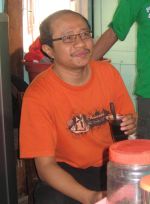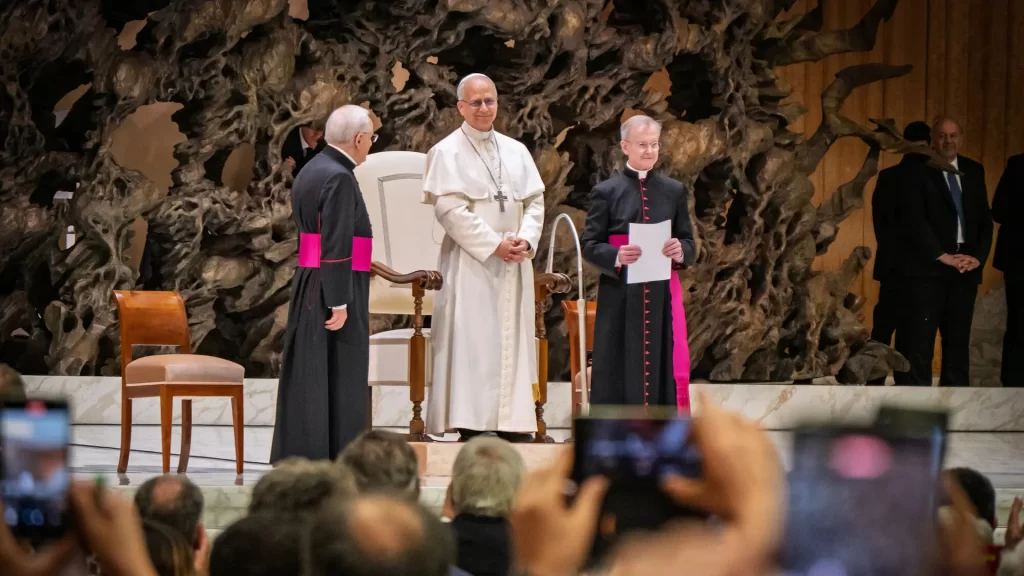
A group of scholastics recently spent four days with some communities in Wonosobo District uplands learning about how local families draw a livelihood from the land while keeping a forest canopy that protected the soil, water and nutrient cycles. In contrast, some neighbouring communities of a different ecosystem and a different land use practice where potato growing has taken hold are experiencing chronic loss of soil, water and nutrient. Ecological concerns and the responsibility of experiencing the meaning of reconciliation with creation challenge us to form a new and integrated response to how we live as society. Fr Greg Soetomo SJ explains the objective of this immersion experience.
The signs of the times are changing and so the methods of immersion for Jesuit scholastics. Immersion or live-in programs are not something new for us but if we strategically and systematically plan and think through the process, the result of how and what we learn could be different.
Realistically, we cannot expect sudden change in action among the scholastics. I believe there is something going on in their mind and heart at the rational and emotional level, change is happening. Not necessarily all of them would have a paradigm shift although I believe there are definite changes within. Change may not be in terms of having new habits but more on having new way of looking at things:
- To create new ways of learning that differ from the regular school setup; more than memorizing and having classroom discussions, I want them to experience in order to understand and so to follow through in life.
- In order to experience, we need to create new methodology of studying social-reality.
- For scholastics to gain new perspectives in socio-environmental aspects.
Understanding the signs of the times is important for the young Jesuits. These signs are not only about ecology, but looking beyond is the integration of spirituality and faith at new levels and new areas of our lives. These scholastics who study philosophy, now through this experience, find philosophy is no longer an empty box or vacuum) – there is already the substance of experience and the engagement with someone else’s paradigm to strengthen the philosophical dimension of learning. By literacy, we need to know the alphabet or the ABC, however it is not enough. Just like ecology. Ecology is a paradigm – this could be the starting point should we want to understand a problem or human beings. Ecological impact comes to so many aspect of our life.
Sometimes people do not have to come to the mountains in Wonosobo to know the importance of all of these issues; rather it is how they experience the problem that is significant leaving a marked change in their life. This “crossed” program of ecology and religion; ecology and human rights; ecology and human need; ecology and sustainability. Individually engaging community and reflecting as a group integrated these topics not treating them as independent ideas and giving them a grounded reality in daily. Engagement in ecology could be tapped by the coming bi-annual scholastics meeting in December that is primarily focused on dialogue with Islam. Interreligious dialogue would not be effective if not accompanied by social formation. There is a need to have dialogue with Muslim leaders about socio-environmental ecology and transformation.
The Indonesian scholastics are supposed to have skills development – new skills in data gathering and research. This activity is a medium or opportunity to sharpen their skills. This program is in line with the Province program direction, 2010-2015, focusing on:
- alleviating poverty;
- preventing ecological and environmental destruction; and
- combating religious radicalism.







